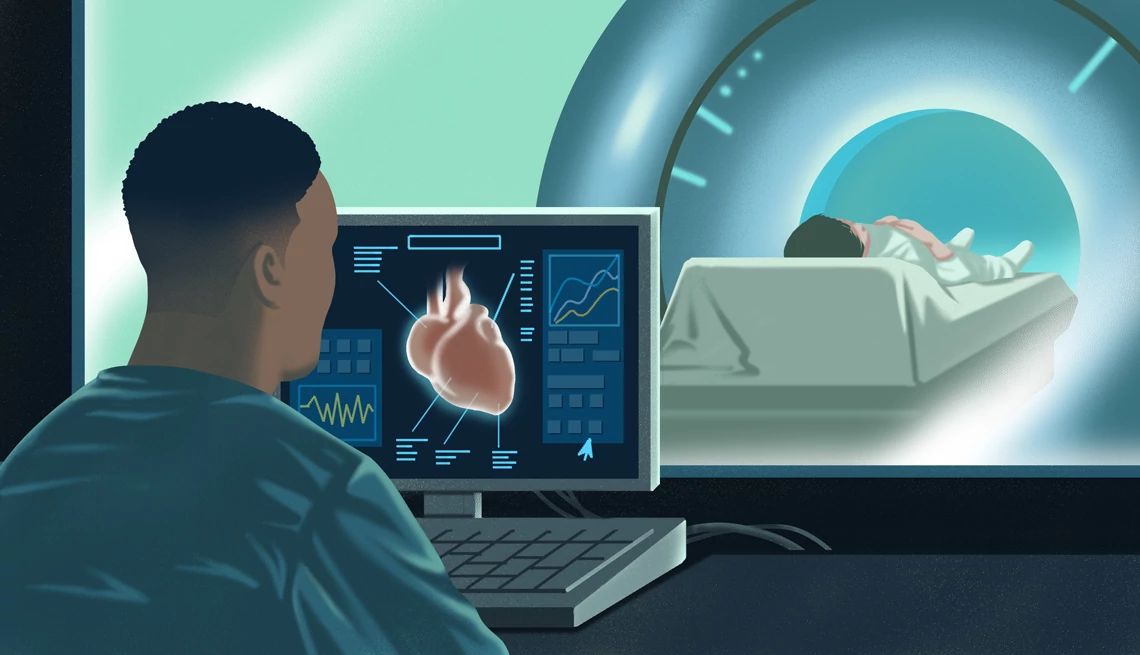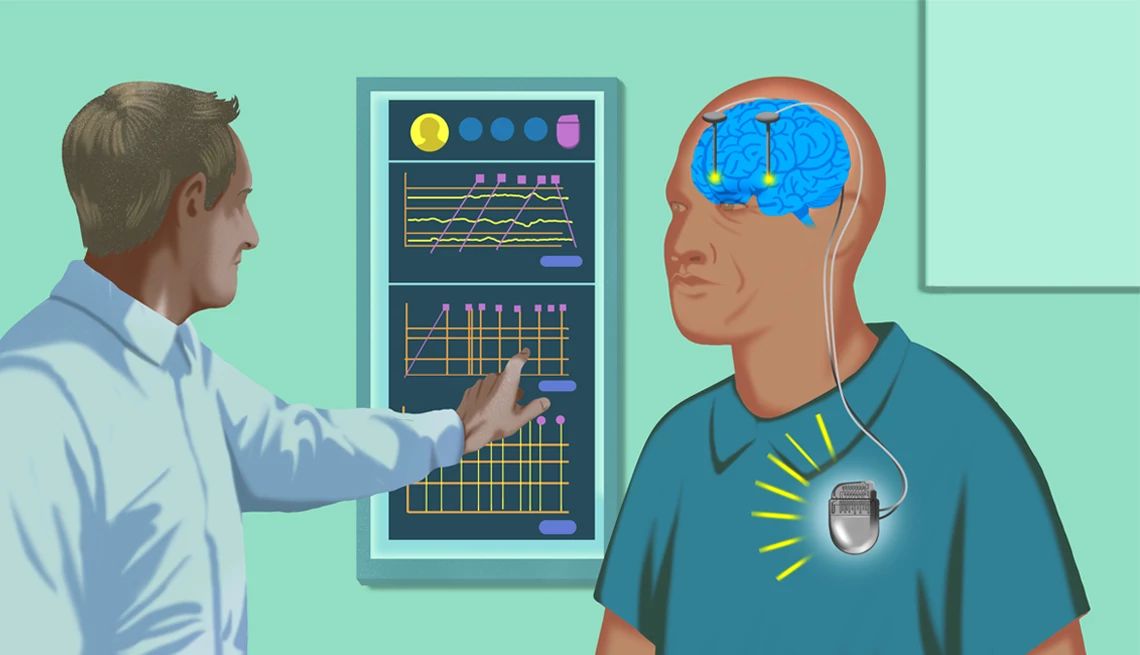AARP Hearing Center
Twenty years ago, getting a pancreatic cancer diagnosis was often devastating. The cancer usually wasn’t caught until later stages, partly because the pancreas is tucked behind the stomach, making it hard to detect tumors. Plus, many of the warning signs — abdominal discomfort, back pain, unintended weight loss and fatigue — are easy to overlook or write off as something else entirely, and they often arise late in the game.
“[Pancreatic cancer] almost sits silently in the body, and then it shows up when it's advanced,” says Shubham Pant, M.D., a professor in the Department of Gastrointestinal Medical Oncology at the MD Anderson Cancer Center in Houston.
Today, however, the five-year survival rate for pancreatic cancer has more than doubled from where it was two decades ago. If the disease is caught early and the tumor is small and confined to the pancreas, as is the case in about 16 percent of diagnoses, the survival rate is around 44 percent, according to the American Cancer Society.
Several recent medical advances have helped prolong the lives of many people with pancreatic cancer, says Brian Wolpin, M.D., a professor of medicine at Harvard Medical School and co-director of the Pancreas and Biliary Tumor Center at Dana-Farber Cancer Institute in Boston. Systemic treatments, like chemotherapy, have improved, and radiation delivery has gotten better and more precise, he says. What’s more, breakthroughs in targeted therapies are generating “major excitement in the field,” Wolpin adds.
Here's a look at some of the latest progress taking place in pancreatic cancer.
Advances in detection and treatment
8 Warning Signs of Pancreatic Cancer
An estimated 67,440 people in the U.S. will be diagnosed with pancreatic cancer in 2025, according to the latest report from the American Cancer Society. Here are some common symptoms:
- Abdominal discomfort in the mid- to- upper abdomen that often radiates to the back
- New onset diabetes or worsening blood sugar levels, especially with weight loss
- Darkening of urine and lightening of stool
- Jaundice (yellowing of the skin and whites of the eyes)
- Itching
- Nausea and vomiting
- Fatigue
- Loss of appetite and unintentional weight loss
Treatment is more likely to be effective the sooner the cancer is caught.
The great promise of targeted therapy
Researchers are learning more about unique changes in pancreatic cancer cells that help them grow, and are developing treatments to target these changes. These medications are known as targeted therapies.
“When you talk about targeted therapy, it's on the assumption that there's a specific molecular alteration — whether a gene mutation or a protein over-expression — that is an Achilles heel for that cancer and is something that's very actively driving that cancer,” says Michael Pishvaian, M.D., director of Gastrointestinal, Developmental Therapeutics and Clinical Research Programs for the Johns Hopkins Kimmel Cancer Center. “And by shutting down its activity, usually with a drug, then you can significantly impede or reverse the growth of the cancer.”
There are a number of targets researchers have identified in pancreatic cancer — a big one is a mutation on the KRAS gene, which is present in the vast majority of pancreatic cancer cases. Pisvaian says there has been “an absolute tidal wave of new therapies” targeting KRAS that have emerged, and early data is showing promising results.
Pant explains that these experimental therapies — all are still in clinical trials — work by turning the mutation off, just like a light switch turns the lights off.
“If you have the [KRAS] mutation, the light is always turned on in your house, and you cannot turn it off because it's stuck in the ‘on’ position,” Pant says. “So these inhibitors bind to that switch and turn it off. So just like the light would go off in your house, this mutation leads to cancer-cell death once you turn that switch off.”
Progress is being made with other targets as well, which is why molecular testing of pancreatic cancer is crucial, doctors say. “There's a lot more going on now where we've been able to design drugs against targets in pancreatic cancer that just didn't have drugs before,” Wolpin says.







































































)






More From AARP
Cancer Cases Are Rising in U.S.
Diagnoses are increasing among younger and middle-aged adultsA Simple Test Can Tell You How Well You're Aging
Balance is key to maintaining independence and wellbeingTry These Tips for Living a Healthier Life
Small changes can add up to big mental and physical results